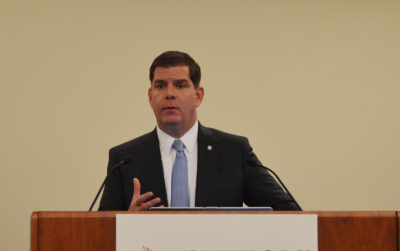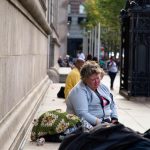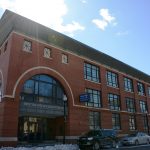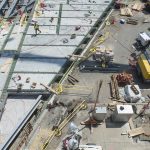
The 2017-18 SPARK Boston Council, a 38-member group of Boston residents aged 20 to 34 selected to represent the city’s millennial population, was announced by Mayor Martin Walsh on Tuesday, according to a press release from his office.
The council, which will be housed in the Mayor’s Civic Engagement Cabinet, will work closely with the city department and community stakeholders to advise Walsh’s millennial program. The group will hold monthly meetings to discuss issues affecting young people in Boston and organize programs such as neighborhood meet-ups and salary negotiation workshops to connect millennials with partners in local government and the community at large, according to the release.
The applications closed on July 16, The Daily Free Press reported in June.
One third of the new council members are local Bostonians, while the remainder hail from various locations within the United States and abroad, including areas as distant as France, India and Spain, according to the release. These diverse members include entrepreneurs, designers, social workers, restaurant professionals, students, community organizers and veterans, among other professions.
Amy Mahler, director of SPARK Boston, said having non-Boston natives on the council will help add an element missing from last year’s group.
“I think having a little bit of that new-Boston approach on the council will help us better understand some of the gaps,” Mahler said. “If you’re not somebody who already has personal connections throughout the city, how is it that you’re getting your information? How can we make city services and programs more accessible and transparent?”
Mahler said this year’s group places a specific emphasis on contributing to the community.
“It was one of the things we were really looking for in our group interview process — a spirit of listening and a spirit of teamwork – and I’m really hoping they’re going to take that into the program and [the] resources that they’ll be putting together on the council,” Mahler said.
Mahler said she hopes the current council will create positive change for Boston’s vast millennial population.
“We want to make sure that these young people are basically the city’s ambassador to the millennial population, but also the millennial advocate to City Hall and community leaders,” Mahler said. “We want to make sure that they can take that knowledge and energy that they have and really be able to use it contribute and be seen in the community.”
Rosa Herrero de Andres, a new council member and Jamaica Plain resident, wrote in an email she hopes to further the legacy inspired by last year’s council.
“The legacy of previous councils is amazing,” Herrero de Andres wrote. “I hope I continue to empower the millennial population to take a more active role in the city. It is particularly important to build on the momentum of the previous election cycle to engage this traditionally indifferent population.”
Herrero de Andres wrote she believes in the importance of familiarity and intimacy among Boston millennials.
“Creating connections between Boston’s diverse population is especially important in the current political environment,” Herrero de Andres wrote. “I love Boston and its people and I want to give and be committed to this city. I am a firm believer in the power of community engagement… SPARK is the perfect place to direct my passion, energy and skills where I live.”
Neel Desai, a new council member and Back Bay resident, wrote in an email he wishes to emphasize engagement and communication between millennials and their community while on the council.
“Looking ahead into this year, I hope to continue helping the council find ways to engage with millennials, and develop more programs to support them in various parts of their lives,” Desai wrote. “SPARK has the perfect opportunity to serve as this intermediary.”
Desai wrote he hopes to continue what previous councils have done to help be a voice for millennials in the community who wish to seek change.
“I believe that young people are seeking ways to create change at the local levels,” Desai wrote. “Developing channels of communication and opportunities for discussion at the city [level] is vital at a time where many feel hopeless at the country level.”




